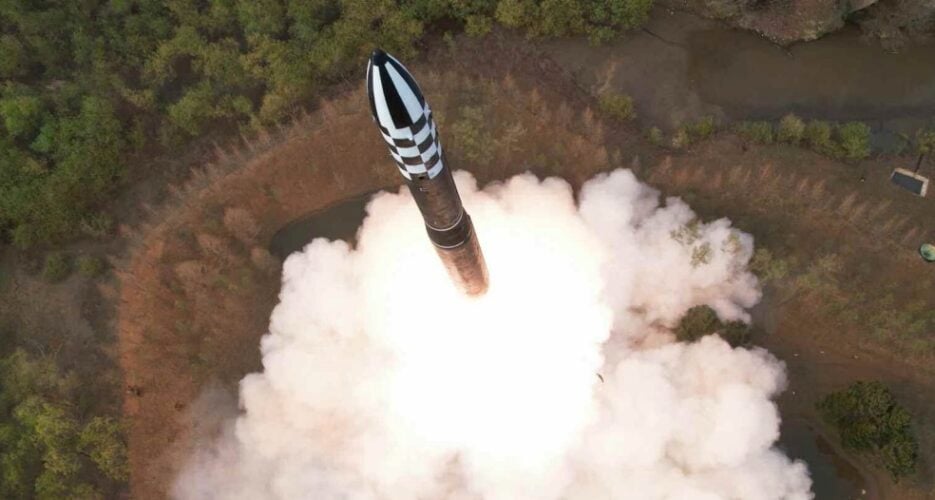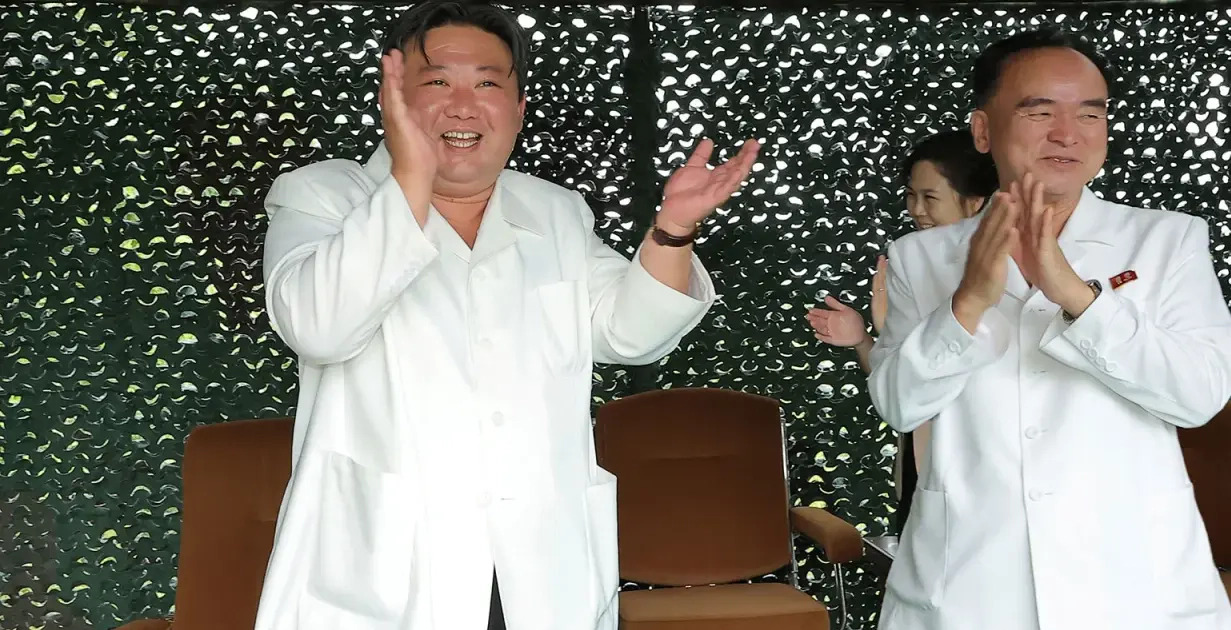North Korea Fired A Hwasong-18 Intercontinental Ballistic Missile On Wednesday
North Korea fired a Hwasong-18 intercontinental ballistic missile on Wednesday, raising concerns about a potential new round of confrontation with Washington and its allies.
Author:Morgan MaverickReviewer:Raven NoirJul 13, 2023363 Shares60.5K Views

North Korea fired a Hwasong-18 intercontinental ballistic missile on Wednesday, raising concerns about a potential new round of confrontation with Washington and its allies.
The missile flew for over 70 minutes, marking a marginal advancement compared to previous missile tests conducted earlier this year. North Korean leader Kim Jong Un personally guided the test-fire of the Hwasong-18, emphasizing the significance of the launch.
“„The missile launch took place at a grave period when the military security situation on the Korean Peninsula and in the region has reached the phase of nuclear crisis beyond the Cold Warera as the US and its vassal forces' unprecedented military provocations against the DPRK have been intensified.- KCNA
Timing Of The Launch And Range Insights
The timing of the missile launch is notable as it coincides with the NATO summit in Lithuania, where leaders from South Korea, Japan, and the US are discussing security issues, including the threat posed by North Korea. The launch is seen as a deliberate move to assert North Korea's presence and disrupt diplomatic coordination against the nation.
The flight time of the missile, which landed in waters near Japan, provides insights into its range. The latest ICBM launch covered a distance of approximately 1,000 kilometers (621 miles) and reached an altitude of over 6,000 kilometers (3,700 miles) during its 74-minute flight.
It is important to note that North Korea typically tests its missiles on a highly lofted trajectory, ensuring they splash down in nearby waters, rather than employing the trajectory used in an actual attack.

International Response And Condemnation
The international community, particularly the United States, condemned North Korea's missile test. The US National Security Council spokesperson emphasized that the launch violated multiple UN Security Council resolutions and heightened tensions in the region.
In response, the US called on all countries to condemn the violation and urged North Korea to engage in serious negotiations while reiterating its commitment to ensuring the security of its allies.
“„The door has not closed on diplomacy, but Pyongyang must immediately cease its destabilizing actions and instead choose diplomatic engagement. The United States will take all necessary measures to ensure the security of the American homeland and Republic of Korea and Japanese allies.- Adam Hodge, US National Security Council Spokesperson
South Korean President Yoon Suk Yeol held an emergency National Security Council meeting in Lithuania in response to the missile launch. President Yoon expressed the need for strong international solidarity at the NATO summit to address North Korea's actions.
However, North Korea has shown no willingness to engage in negotiations with Washington or Seoul.
Accusations And Domestic Support
Kim Yo Jong, a senior North Korean official and sister of Kim Jong Un, recently claimed that a US spy plane had intruded into North Korea's exclusive economic zone multiple times.
“„In case of repeated illegal intrusion, the US forces will experience a very critical flight- Kim Yo Jong
The US and South Korea dismissed these allegations and urged North Korea to refrain from creating tension with false claims.
Analysts suggest that North Korea's accusations and missile tests are part of a pattern aimed at inflating external threats to rally domestic support and justify weapons development. The timing of the launch during the NATO summit is viewed as an attempt to disrupt diplomatic coordination against North Korea.
Future Implications And Diplomatic Solutions
The successful missile launch precedes the upcoming 70th anniversary of the Korean Armistice Agreement, which brought about a cessation of hostilities in the Korean War. It also follows North Korea's failed launch of the first spy satellite in May.
As tensions continue to rise, the international community remains focused on finding a diplomatic solution to address North Korea's missile and nuclear weapons programs. The outcome of the NATO summit discussions and future negotiations will play a crucial role in determining the path forward and easing tensions on the Korean Peninsula.
Conclusion
The situation calls for a delicate balance of diplomatic engagement, condemnation of provocative actions, and efforts to promote stability in the region. The international community will closely monitor North Korea's next steps and work towards ensuring a peaceful resolution to the ongoing tensions.

Morgan Maverick
Author
Morgan Maverick is an unorthodox news reporter driven by an insatiable hunger for the truth. Fearless and unconventional, he uncovers hidden narratives that lie beneath the surface, transforming each news piece into a masterpiece of gritty authenticity. With a dedication that goes beyond the boundaries of conventional journalism, Morgan fearlessly explores the fringes of society, giving voice to the marginalized and shedding light on the darkest corners.
His raw and unfiltered reporting style challenges established norms, capturing the essence of humanity in its rawest form. Morgan Maverick stands as a beacon of truth, fearlessly pushing boundaries and inspiring others to question, dig deeper, and recognize the transformative power of journalism.

Raven Noir
Reviewer
Raven Noir is a captivating and enigmatic news reporter who unravels mysteries with a relentless pursuit of truth. Possessing an insatiable curiosity and an astute mind, Raven delves into the depths of complex stories, unearthing secrets that lie beneath the surface. With a masterful grasp of deduction and observation, Raven stands as a beacon of fearless investigation.
In the realm of journalism, Raven is known for his enigmatic presence, drawing people in with an aura of intrigue. Driven by an unwavering passion for unveiling the truth, Raven Noir continues to shed light on the darkest corners of society. Through captivating storytelling and unwavering determination, he challenges conventions and uncovers enigmatic secrets that lie just beyond the surface.
Latest Articles
Popular Articles